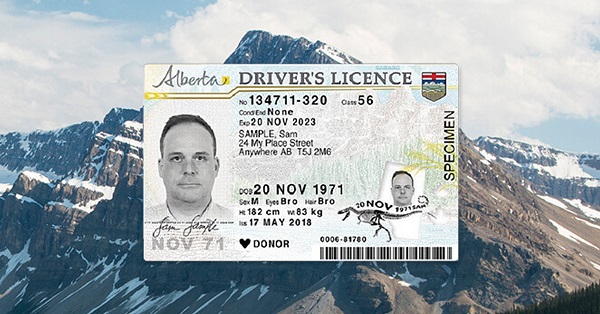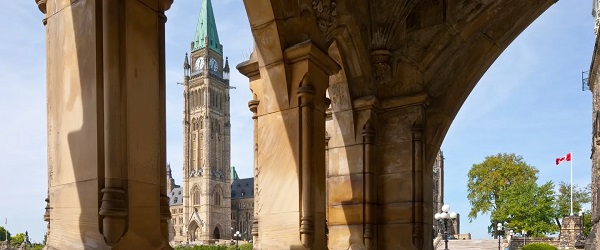Business
Next federal government should reverse Ottawa’s plastics ban

From the Fraser Institute
By Julio Mejía and Elmira Aliakbari
As noted by the Trudeau government, plastic substitutes contribute to lower air quality and “typically have higher climate change impacts” due to higher GHG emissions.
Recently at the White House, President Donald Trump signed an executive order reversing the Biden administration’s plan to phase out plastic straws. The Trudeau government, however, continues with its plan to ban single-use plastics, even though this prohibition will have minimal impact worldwide, will actually increase waste in Canada, and force a transition to alternatives that impose greater environmental harm. Rather than doubling down on a flawed policy, the next federal government should reverse Trudeau’s plastic ban.
In 2021, the Trudeau government classified plastic items as “toxic,” paving the way for the ban on the manufacturing, importing and selling of checkout bags, cutlery, stir sticks and straws—all single-use plastics. In 2023, the Federal Court deemed the designation “unreasonable and unconstitutional”—but the Trudeau government defended the measure and is appealing, with a ruling expected this year.
According to the latest available data, Canada’s contributes 0.04 per cent to global plastic waste. The United States contributes 0.43 per cent—more than 10 times Canada’s share. But neither country is a major contributor to global plastic waste.
According to a 2024 article published in Nature, a leading scientific journal, no western country ranks among the top 90 global plastic polluters, thanks to their near-total waste collection and controlled disposal systems. Conversely, eight countries—India, Nigeria, Indonesia, China, Pakistan, Bangladesh, Russia and Brazil—generate more than half of global plastic waste. And nearly 75 per cent of the world’s ocean plastic comes from Asia with only six countries (Philippines, India, Malaysia, China, Indonesia and Myanmar) accounting for most of the world’s ocean plastic pollution.
The Trudeau government’s own science assessment, cited in the court appeal, states that 99 per cent of Canada’s plastic waste is already disposed of safely through recycling, incinerating and environmentally-friendly landfills. Despite these facts, plastic has become a target for blanket restrictions without fully considering its benefits or the downsides of switching to alternatives.
Consider this. Plastics are lightweight, durable and indispensable to modern life. From medical devices, food packaging, construction materials, textiles, electronics and agricultural equipment, plastics play a critical role in sectors that improve living standards.
Alternatives to plastic come with their own environmental cost. Again, according to the government’s own analysis, banning single-use plastics will actually increase waste generation rather than reduce it. While the government expects to remove 1.5 million tonnes of plastics by 2032 with the prohibition, it will generate nearly twice as much that weight in waste from alternatives such as paper, wood and aluminum over the same period. Put simply, the ban will result in more, not less, waste in Canada.
And there’s more. Studies suggest that plastic substitutes such as paper are heavier, require more water and energy to be produced, demand more energy to transport, contribute to greater smog formation, present more ozone depletion potential and result in higher greenhouse gas (GHG) emissions.
As noted by the Trudeau government, plastic substitutes contribute to lower air quality and “typically have higher climate change impacts” due to higher GHG emissions.
While plastic pollution is a pressing global environmental issue, Canada is not a major contributor to this problem. The rationale behind the Trudeau government’s plastic ban lacks foundation, and as major economies including the U.S. go back to plastic, Canada’s plastic prohibition becomes increasingly futile. The next federal government, whoever that may be, should reverse this plastic ban, which will do more harm than good.
Business
Canadian gov’t spending on DEI programs exceeds $1 billion since 2016

From LifeSiteNews
Some departments failed to provide clear descriptions of how the taxpayer funds were used. For example, Prairies Economic Development Canada spent $190.1 million on projects related to diversity, equity and inclusion ventures but could not provide details.
Federal diversity, equity and inclusion programs have cost Canadian taxpayers more than $1 billion since 2016.
According to information published September 18 by Blacklock’s Reporter, diversity, equity and inclusion (DEI) government grants have totaled $1.049 billion since 2016, including grants for “cultural vegetables.”
A $25 million grant, one of the largest individual grants, was given to the Canadian Gay and Lesbian Chamber of Commerce to “strengthen Canada’s entrepreneurship ecosystem to be more accessible to LGBTQ small businesses.”
The government payouts were distributed among 29 departments, ranging from military to agricultural projects.
The Department of Agriculture spent $90,649 for “harvesting, processing and storage of cultural vegetables to strengthen food security in equity-deserving Black communities” in Ontario.
Some departments failed to provide clear descriptions of how the taxpayer funds were used. For example, Prairies Economic Development Canada spent $190.1 million on projects related to diversity, equity and inclusion ventures but could not provide details.
“PrairiesCan conducted a search in our grants and contributions management system using the keywords ‘equity,’ ‘diversity’ and ‘inclusion,’” the Inquiry said. “Certain projects were included where diversity, equity and inclusion were referenced but may not be the main focus of the project.”
DEI projects are presented as efforts by organizations to promote fair treatment, representation, and access to opportunities for people from varied backgrounds. However, the projects are often little more than LGBT propaganda campaigns funded by the Liberal government.
As LifeSiteNews reported, the University of British Columbia Vancouver campus posted an opening for a research chair position that essentially barred non-homosexual white men from applying for the job.
Additionally, during his short time in office, Liberal Prime Minister Mark Carney has already shown Canadians that he is a staunch supporter of the LGBT agenda after he spent over $2 million in taxpayer funding on LGBT groups during his first week in office.
Canadians have repeatedly appealed to Liberals to end pro-LGBT DEI mandates, particularly within the education system.
As LifeSiteNews previously reported, in June 2024, 40 Canadian university professors appealed to the Liberal government to abandon DEI initiatives in universities, arguing they are both ineffective and harmful to Canadians.
Business
How the feds blew your money this week

The Governor General’s closet: A queen’s dream and a taxpayers’ nightmare
Governor General Mary Simon is spending your money like it’s her personal fund for Buckingham Palace’s boutique.
The governor general dipped into her taxpayer piggy bank (a.k.a. your wallet) to fund her shoe collection — six new pairs in 12 months — and is even charging you for her undergarments.
You read that right. Apparently, hundreds of dollars in silk undergarments are now considered essential to public services.
Simon spent $330 of taxpayers’ money on silk camisoles, $1,117 on shoes, $875 on a single blazer, $1,500 on a “sealskin chest piece” and $2,510 on luxury wool suits during the last fiscal year.
Simon spent $144 on a “black dress cardigan.” The “value of the item” according to the expense sheet is half that, listed at only $72. Is there anything the government doesn’t go overbudget on?
It’s very rare for any minister or prime minister to expense clothing. Only two ministers expensed apparel last year — each less than $300 for work boots for an event at a construction site.
Simon billed you for a total of $7,576 on shoes and clothing last year.
Simon’s annual salary is $378,000 a year. Let’s just say she doesn’t need to force you to pay for her clothes.
And that’s not all! Simon’s expansive wardrobe isn’t the only way the governor general’s office is draining the public purse.
Her lavish wardrobe is just the start of the spending spree. Since her appointment, she spent more than $120,000 on speech writers — and don’t get us started on her crazy travel expenses.
Simon has been enjoying mile-high catering — meals on airplanes include beef Wellington, carpaccio, stuffed pork tenderloin and hundreds of dollars on lemons, limes and bottled water. The list goes on.
Simon and her entourage billed you about $100,000 for airplane food during their week-long trip to the Middle East. A separate four-day trip to Germany totaled $103,000 in catering costs. She also spent hundreds of dollars on flowers to go along with the lavish meals.
All on your dime.
Oh, and the cost of those trips totalled $1 million and $700,000, respectively.
Simon also famously spent $71,000 at “Icelimo Luxury Travel” during a four-day trip to Iceland. The total bill for that trip cost taxpayers $298,000.
In fact, the governor general’s travel during her first year in office cost you almost $3 million.
Why is she even going on these far-flung excursions? The governor general’s role is to represent the monarchy here in Canada.
When was the last time you took your family on a vacation? Next time you agonize over fuel or air travel costs, remember you’re already footing the bill for an unelected figurehead’s opulent jet-setting.
The worst part of all this? The governor general’s flamboyant spending is all within rules laid out by the federal government.
Governors general can bill you up to $130,000 on clothes over their five-year term.
And all those posh clothes need cleaning, right? The governor general’s office spent $117,000 on professional dry-cleaning services since 2018, despite having staff dedicated to doing the laundry.
That works out to more than $1,800 per month spent on dry cleaning.
It’s time to close the royal boutique and stop treating taxpayers like an unlimited credit card.
Franco’s note: I just want to give a shout out to the great investigative news outlet, Blacklock’s Reporter. They were the first outlet to report on this spending. And that’s not the only big taxpayer story they uncovered this week. Check this one out: https://www.blacklocks.ca/d-e-
Carney shrinks from pro-active cuts — lets bureaucrats retire themselves
The Canadian Taxpayers Federation called out Prime Minister Mark Carney for his lackadaisical approach to Ottawa’s bureaucracy.
Carney needs to cut staff, not just wait for them to retire.
Here’s the back story:
The federal bureaucracy ballooned disproportionately under the Trudeau Liberals. Carney’s predecessor added nearly 100,000 paper pushers during his decade-long tenure.
The federal bureaucracy cost taxpayers $71.1 billion in 2024-25 — a 77 per cent increase from the $40.2 billion expense in 2016-17.
Enter Mark Carney, armed with a plan … based on inaction and procrastination.
The prime minister said he’s directed federal departments and Crown corporations to cut up to 15 per cent of their budgets over the next few years. He also claimed he would “balance the operating budget by Budget 2028.”
That seemed like a promising start — until Carney announced the cuts would “happen naturally through attrition.”
The bureaucracy now consumes about 55 per cent of the operating budget. And quality of service is decreasing.
Half of Canadians think services are worse than in 2016, according to a Leger poll commissioned by the CTF. Only 11 per cent say they’re better — proving the bureaucracy isn’t shrinking, it’s suffocating.
The poll showed most Canadians want to see the federal bureaucracy cut.
We’ll keep fighting for real cuts — not just a slow march to retirement.
Video: Carney clueless about his own gun confiscation
Carney called his gun confiscation “voluntary.”
Except the federal government announced a list of banned guns that many Canadians had stored in their homes.
Those firearms are suddenly illegal.
The Carney government plans to confiscate them in exchange for compensation. The penalty for illegal possession of a prohibited firearm under the Criminal Code is up to five years in jail.
And taxpayers like you are forced to pay those law-abiding Canadians after the government seizes their property.
“We’re not confiscating guns,” Carney said. “[It’s] an opportunity for Canadians to return guns for compensation.”
What does that mean? Taxpayers have questions.
The CTF’s Gage Haubrich and Kris Sims break it down in the video below and offer Carney an easy solution: scrap the gun ban and confiscation scheme.
-

 Alberta2 days ago
Alberta2 days agoAlberta first to add citizenship to licenses
-

 Alberta2 days ago
Alberta2 days agoBreak the Fences, Keep the Frontier
-

 Business23 hours ago
Business23 hours agoCarney’s ‘major projects’ list no cause for celebration
-

 Business22 hours ago
Business22 hours agoRed tape is killing Canadian housing affordability
-

 Business1 day ago
Business1 day agoGlobal elites insisting on digital currency to phase out cash
-

 Business2 days ago
Business2 days agoCarney’s Ethics Test: Opposition MP’s To Challenge Prime Minister’s Financial Ties to China
-

 Business2 days ago
Business2 days agoAttrition doesn’t go far enough, taxpayers need real cuts
-

 Health21 hours ago
Health21 hours agoMAiD should not be a response to depression





